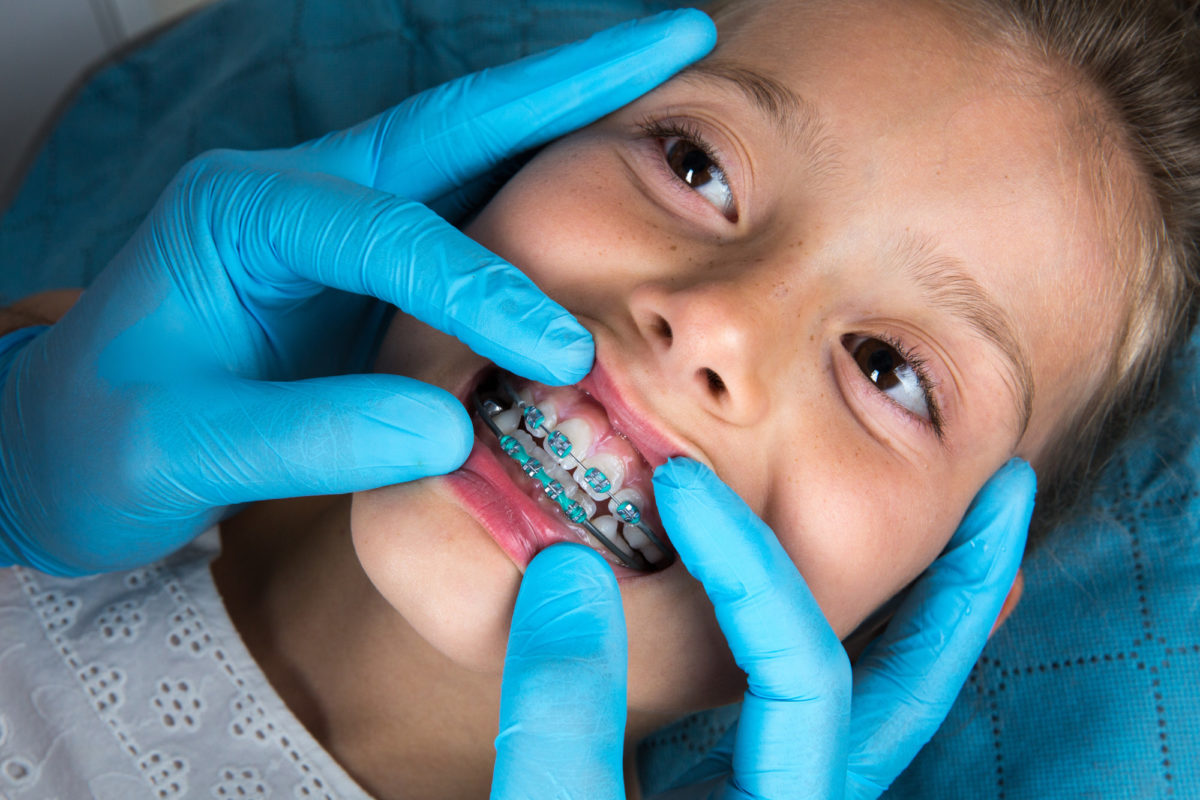The Link Between Oral Health and Overall Health
Good oral health is crucial for overall well-being, and this connection is particularly significant in children. Neglecting oral hygiene can have far-reaching consequences on a child’s overall health and development. This section explores the impact of poor oral health on general health and highlights the link between oral health and systemic diseases.
Impact of Poor Oral Health on Overall Health
Oral health issues, if left untreated, can contribute to various health problems in children. Tooth decay, gum disease, and oral infections can lead to pain, difficulty in eating, and impaired speech. Moreover, the bacteria present in the mouth can enter the bloodstream, causing inflammation and potentially affecting other organs and systems in the body.
Common Oral Health Issues in Children
Children commonly face oral health issues such as cavities, gum problems, and misalignment of teeth. These problems can be attributed to poor oral hygiene practices, excessive consumption of sugary foods and beverages, and a lack of regular dental care.
Connection Between Oral Health and Systemic Diseases
Scientific research has revealed a strong link between oral health and systemic diseases in children. Poor oral health has been associated with an increased risk of conditions such as cardiovascular disease, diabetes, respiratory infections, and even certain types of cancers. The inflammation and infection caused by oral bacteria can spread throughout the body, triggering or exacerbating these systemic diseases.
Maintaining Good Oral Health in Children
To ensure optimal oral health in children, it is essential to establish good oral hygiene practices early on. This section outlines key strategies for maintaining good oral health in children.
Oral Hygiene Practices for Children
Teaching children proper oral hygiene habits is crucial. Parents should educate their children on the importance of brushing their teeth at least twice a day using fluoride toothpaste. They should also encourage regular flossing to remove plaque and food particles from between the teeth. Using a soft-bristled toothbrush and demonstrating the correct brushing technique will help children develop good habits.
Dental Check-ups and Professional Care
Regular dental check-ups are vital for children to detect and address any oral health issues early on. Dentists can perform professional cleanings, conduct examinations, and provide guidance on proper oral care. Scheduling dental visits every six months allows for preventive measures and ensures early intervention if problems arise.
Healthy Diet and Its Role in Oral Health
A nutritious diet plays a significant role in maintaining good oral health in children. Encouraging a balanced diet rich in fruits, vegetables, whole grains, and lean proteins helps support healthy teeth and gums. Limiting sugary snacks and beverages, which can contribute to tooth decay, is also crucial. Promoting healthy eating habits establishes a strong foundation for overall oral health.
Preventive Measures for Optimal Oral Health
Prevention is key when it comes to oral health in children. This section highlights essential preventive measures that can safeguard their dental well-being.
Fluoride and Its Benefits
Fluoride, a natural mineral, strengthens tooth enamel and helps prevent tooth decay. Ensuring that children receive an adequate amount of fluoride through fluoridated water, fluoride toothpaste, or fluoride treatments at the dentist’s office can significantly reduce the risk of cavities.
Sealants for Dental Protection
Dental sealants are thin, protective coatings applied to the chewing surfaces of back teeth. They create a barrier that helps prevent tooth decay by sealing out bacteria and food particles. Applying sealants to children’s permanent molars, which are prone to cavities, can offer long-lasting protection.
Importance of Regular Brushing and Flossing
Emphasizing the importance of regular brushing and flossing cannot be overstated. Brushing twice a day and flossing once a day remove plaque and debris, preventing the formation of cavities and gum disease. Parents can make brushing and flossing more engaging for children by using colorful toothbrushes, flavored toothpaste, and fun oral care products.
Limiting Sugary Snacks and Beverages
Excessive consumption of sugary snacks and beverages is a leading cause of tooth decay in children. Limiting their intake of sugary treats and promoting healthier alternatives such as fruits, vegetables, and water can significantly reduce the risk of cavities. Encouraging moderation and good nutrition habits benefits both oral and overall health.
Educating Children about Oral Health
Effective oral health education is essential to empower children to take care of their own oral hygiene. This section explores strategies to educate children in a fun and engaging manner.
Fun and Engaging Ways to Teach Oral Hygiene
Using interactive and age-appropriate methods can make oral hygiene education enjoyable for children. Incorporating songs, games, and storytelling into brushing routines can make it a positive and exciting experience. Additionally, utilizing educational resources like books, videos, and mobile applications designed specifically for children can enhance their understanding of oral health concepts and encourage them to maintain good oral hygiene habits.
Importance of Setting a Good Example
Children learn by observing and imitating their parents and caregivers. Setting a good example by practicing excellent oral hygiene habits yourself sends a powerful message. Brushing and flossing together as a family not only reinforces the importance of oral care but also creates a bonding experience.
Role of Schools and Educational Programs
Schools play a vital role in promoting oral health among children. Integrating oral health education into the curriculum and organizing dental health programs can raise awareness and provide practical knowledge. Collaboration between schools, parents, and oral health professionals can ensure comprehensive oral health education for children.
The Role of Parents and Caregivers
Parents and caregivers play a crucial role in maintaining their children’s oral health. This section explores their responsibilities and ways to promote a positive oral health environment.
Creating a Positive Oral Health Environment
Fostering a positive and supportive environment is essential for children’s oral health. Making oral care a part of daily routines, praising their efforts, and providing encouragement can make children feel empowered and motivated to take care of their teeth and gums.
Promoting Healthy Habits
Parents and caregivers should promote healthy habits by teaching children the importance of oral hygiene, monitoring their brushing and flossing routines, and ensuring they follow a balanced diet. Regular reminders and positive reinforcement can help establish lifelong habits.
Encouraging Regular Dental Visits
Scheduling regular dental visits is vital for preventive care and early intervention. Parents and caregivers should take the initiative to schedule appointments, accompany children to the dentist, and communicate openly with oral health professionals about any concerns or issues.
Common Myths and Misconceptions
This section addresses common myths and misconceptions related to children’s oral health, providing accurate information and dispelling misinformation.
Myth: Baby Teeth Don’t Matter
Contrary to popular belief, baby teeth play a crucial role in a child’s overall oral health. They help with speech development, proper chewing, and alignment of permanent teeth. Neglecting baby teeth can lead to early tooth loss, affecting the child’s oral health and development.
Myth: Sugar Causes Tooth Decay
While excessive sugar consumption is a risk factor for tooth decay, it is not the sole cause. Poor oral hygiene, infrequent brushing, and lack of regular dental care also contribute to cavities. It’s important to address all aspects of oral health to prevent tooth decay effectively.
Myth: Dental Visits Are Only Necessary When There’s a Problem
Regular dental check-ups are essential even if children don’t have apparent oral health issues. Dentists can detect early signs of problems, provide preventive care, and offer guidance on proper oral hygiene practices. Regular visits help maintain optimal oral health and prevent future dental complications.
The Importance of Early Intervention
Early intervention plays a crucial role in addressing oral health issues in children before they escalate. This section emphasizes the significance of identifying and addressing problems early on.
Identifying and Addressing Oral Health Issues Early
Regular dental check-ups enable early detection of dental problems such as cavities, gum disease, and malocclusions. Timely intervention can prevent further complications and ensure appropriate treatment is provided.
Impact of Untreated Dental Problems
Neglected dental issues can lead to pain, infection, and difficulties in eating and speaking, which can significantly impact a child’s overall well-being. Untreated dental problems can also affect the growth and development of permanent teeth, leading to long-term oral health challenges.
Early Orthodontic Evaluation
Orthodontic problems, such as misaligned teeth and jaw discrepancies, can be identified early through orthodontic evaluations. Early intervention allows for timely orthodontic treatment, preventing more complex issues and reducing the need for extensive orthodontic procedures in the future.
Addressing Dental Anxiety in Children
Dental anxiety is a common concern among children that can hinder their oral health. This section provides strategies to ease dental anxiety and ensure positive dental experiences.
Strategies to Ease Dental Anxiety
Dental anxiety can be mitigated through various strategies. Dentists can create a child-friendly and welcoming environment, use age-appropriate language to explain procedures, and employ techniques like distraction, relaxation techniques, and positive reinforcement. Building trust and addressing fears can help alleviate dental anxiety.
Role of Pediatric Dentists
Pediatric dentists specialize in treating children and are trained to handle their unique needs. Their gentle approach, child-friendly offices, and expertise in behavior management techniques make them well-equipped to address dental anxiety and provide optimal care.
Positive Dental Experiences
Positive dental experiences are crucial for shaping children’s attitudes towards oral health. Dentists and dental professionals should prioritize creating a comfortable and positive atmosphere, ensuring pain-free procedures, and engaging children in the treatment process. A positive dental experience can alleviate anxiety and foster a lifelong commitment to oral health.
The Link Between Oral Health and Academic Performance
This section explores the connection between oral health and academic performance in children, emphasizing the importance of oral health for educational success.
Impact of Oral Health on School Attendance
Poor oral health can lead to pain, discomfort, and oral infections, which can result in missed school days. Children with untreated dental problems may experience difficulty concentrating, leading to reduced academic performance. Maintaining good oral health promotes regular school attendance and supports optimal learning opportunities.
Oral Health-Related Distractions and Discomfort
Oral health issues such as toothaches, gum problems, and dental infections can cause distractions and discomfort during school hours. Children may experience difficulty focusing on their studies, participating in classroom activities, or engaging in social interactions. By prioritizing oral health, children can concentrate better and fully participate in their educational environment.
Connection Between Oral Health and Cognitive Function
Emerging research suggests a link between oral health and cognitive function in children. Poor oral health, including untreated dental infections and inflammation, has been associated with lower cognitive performance, memory difficulties, and impaired verbal skills. Maintaining good oral health can positively impact cognitive development and academic achievement.
The Influence of Oral Health on Social Development
Oral health plays a crucial role in children’s social development and overall well-being. This section explores the influence of oral health on self-esteem, speech, communication, and social interactions.
Effects of Poor Oral Health on Self-Esteem
Oral health issues can significantly impact a child’s self-esteem. Crooked teeth, missing teeth, bad breath, or visible dental problems can cause embarrassment and self-consciousness. Maintaining good oral health and seeking appropriate dental treatments contribute to a confident smile, positively influencing a child’s self-esteem and social interactions.
Impact on Speech and Communication
Oral health problems, such as misaligned teeth or speech impediments caused by dental issues, can affect a child’s speech and communication abilities. Pronunciation difficulties, lisps, or challenges with articulation may hinder effective communication and social interactions. Early detection and intervention for oral health issues can support proper speech development and improve communication skills.
Social Stigma and Bullying
Children with visible oral health problems may become targets of social stigma or bullying. Dental issues like discolored teeth, missing teeth, or prominent dental abnormalities can lead to teasing, exclusion, and a negative impact on social interactions. By promoting good oral health and addressing dental concerns, we can help children avoid unnecessary social challenges and build positive relationships.
Oral Health Tips for Children with Special Needs
Children with special needs require specific attention and care for their oral health. This section provides guidance on addressing the unique challenges they may face.
Unique Challenges and Considerations
Children with special needs may experience difficulties with oral hygiene practices due to physical, sensory, or cognitive limitations. This section outlines strategies to overcome these challenges and promote optimal oral health.
Individualized Oral Care Plans
Creating individualized oral care plans is essential for children with special needs. Dentists and caregivers should collaborate to develop strategies tailored to the child’s specific abilities and needs. This may include alternative brushing techniques, adaptive oral hygiene tools, and incorporating sensory-friendly approaches.
Collaborating with Healthcare Professionals
Collaboration with healthcare professionals, such as pediatricians, occupational therapists, and speech therapists, is crucial for comprehensive care. They can provide valuable insights and guidance on addressing specific challenges related to oral health in children with special needs.
Patience, Empathy, and Positive Reinforcement
Children with special needs may require additional time and patience during oral care routines. Using gentle approaches, providing reassurance, and incorporating positive reinforcement techniques can help create a calm and supportive environment, facilitating a positive oral care experience.
Conclusion
The link between oral health and overall health in children is undeniable. By prioritizing oral health practices, parents, caregivers, and healthcare professionals can contribute to a child’s overall well-being, academic success, and social development. Early intervention, preventive measures, and education play crucial roles in promoting optimal oral health. With proper oral hygiene habits, regular dental check-ups, and a supportive environment, children can enjoy healthy smiles and a solid foundation for lifelong oral health.
FAQs (Frequently Asked Questions)
- When should I start taking my child to the dentist?
Answer: It is recommended to take your child to the dentist within six months of their first tooth appearing or by their first birthday, whichever comes first. Early dental visits establish a preventive approach and help monitor oral health development.
- How often should my child have dental check-ups?
Answer: Regular dental check-ups every six months are generally recommended for children. However, the frequency may vary based on the child’s oral health needs and the dentist’s recommendations.
- Are baby teeth important if they eventually fall out?
Answer: Yes, baby teeth are essential for a child’s oral health and overall development. They help with proper chewing, speech development, and serve as placeholders for permanent teeth. Neglecting baby teeth can lead to complications and impact the alignment of permanent teeth.
- What can I do if my child is afraid of going to the dentist?
Answer: Dental anxiety is common among children. To help alleviate fear, find a pediatric dentist experienced in working with children, explain the process using age-appropriate language, and consider using distraction techniques or relaxation exercises. Building a positive dental experience is key to overcoming dental anxiety.
- How can I promote good oral hygiene habits in my child?
Answer: Promote good oral hygiene by setting a good example, making brushing and flossing a fun and interactive activity, using oral care products designed for children, and educating them about the importance of oral health. Regularly reinforce and praise their efforts to instill healthy habits.




